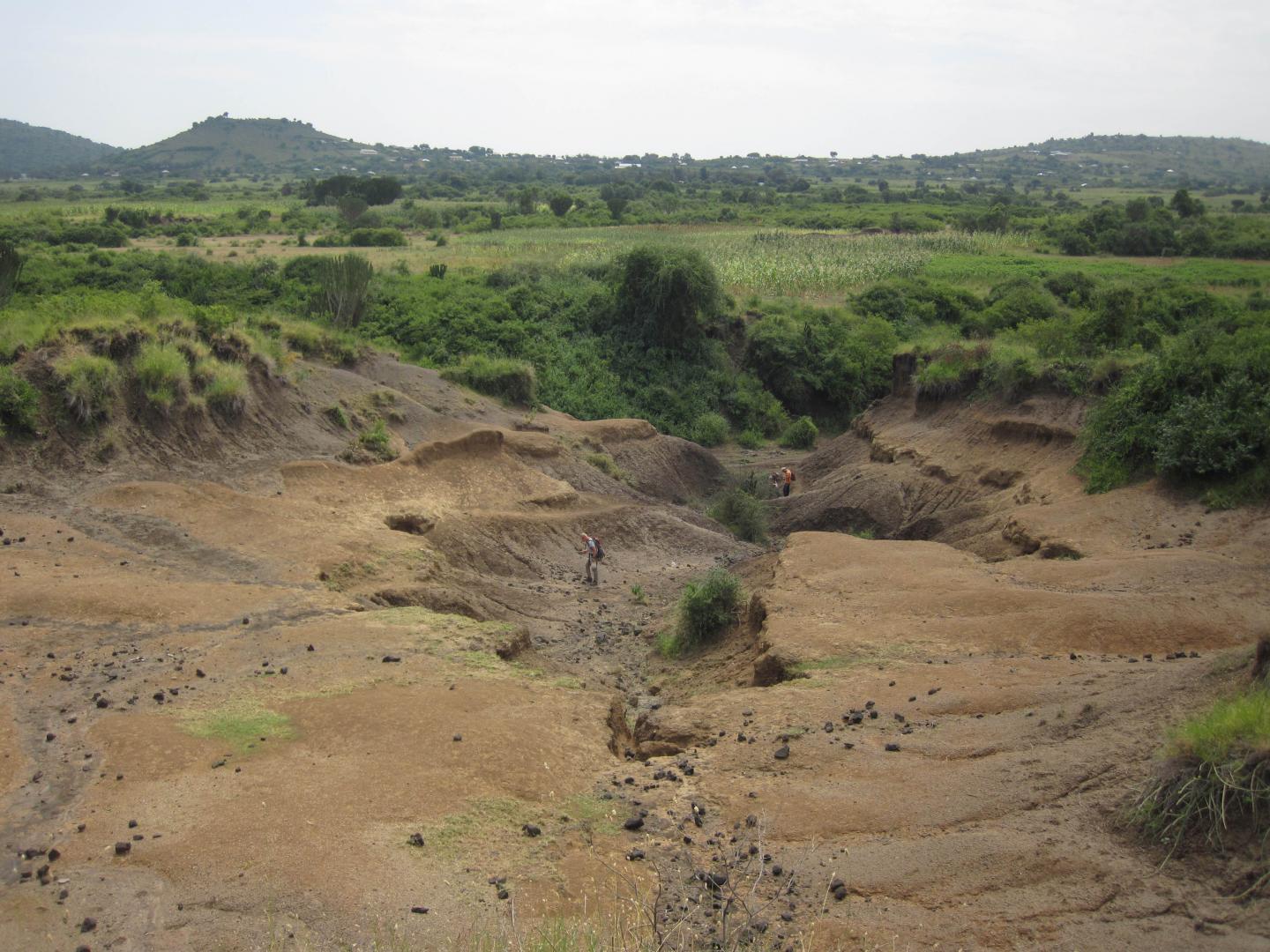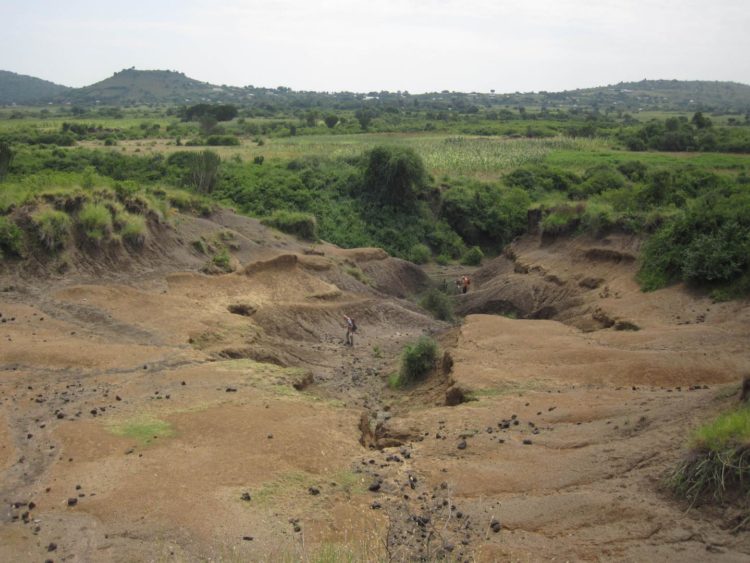UH researcher develops model to project lake levels in world’s largest tropical lake

Credit: Emily Beverly
Global climate change could cause Africa’s Lake Victoria, the world’s largest tropical lake and source of the Nile River, to dry up in the next 500 years, according to new findings from a team of researchers led by the University of Houston. Even more imminent, the White Nile — one of the two main tributaries of the Nile — could lose its source waters in just a decade.
Using ancient sediment from outcrops along the edge of the lake, Emily Beverly, assistant professor of sedimentary geology at the UH College of Natural Sciences and Mathematics, along with researchers at Baylor University, generated a water-budget model to see how Lake Victoria’s levels respond to changes in evaporation, temperature, rainfall and solar energy. Their findings, published in Earth and Planetary Science Letters, indicate a rapid lake level decline was very possible tens of thousands of years ago and could happen again in the future.
“Our model predicts that at current rates of temperature change and previous rates of lake level fall, Lake Victoria could have no outlet to the White Nile in as little as 10 years. Every major port in Lake Victoria could be landlocked within a century, and Kenya could lose access to the lake in 400 years,” Beverly explained.
The result would significantly affect the economic resources supplied by the lake and the livelihoods of approximately 40 million people living in the Lake Victoria Basin.
- Kenya and Tanzania depend on the lake’s freshwaters to support their fishing industries because the lake harvests more than one million tons of fish annually.
- Uganda would be deprived of its primary source of electricity via hydropower and the water that sustains the Nile during non-flood stages.
Lake Victoria gets most of its water from rain, and each year, the area gets about 55 inches of rainfall. The sediment analyzed from along the lake shows rainfall levels from 35,000 to 100,000 years ago were about 28 inches, or almost half of what they are today. The water-budget model in the study shows low amounts of rainfall caused the lake to dry up at least three times in the past 100,000 years and could happen again.
“It’s so warm there and the sun is so strong because you are at the equator that evaporation is very high,” said Beverly. “If the water balance is thrown off, the lake can dry up very quickly. It doesn’t take much of a drop in precipitation to change it.”
This study was made possible with grants from the National Science Foundation, National Geographic Society, Leakey Foundation, Geological Society of America and Society for Sedimentary Geology totaling more than $200,000. Other collaborators include University of Connecticut, University of Utah and the University of Cambridge.
###
Media Contact
Sara Tubbs
[email protected]
713-743-4248
Original Source
http://uh.





